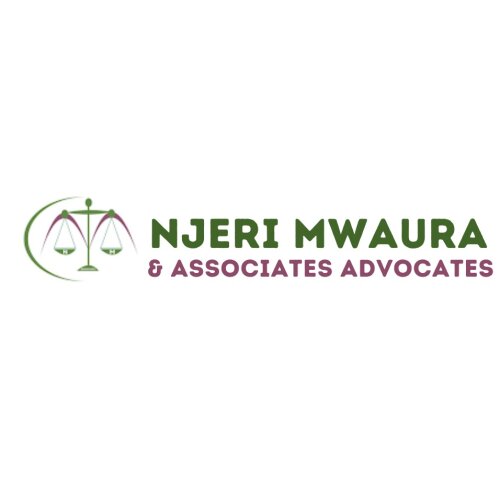Best Landlord & Tenant Lawyers in Ruiru
Share your needs with us, get contacted by law firms.
Free. Takes 2 min.
Free Guide to Hiring a Real Estate Lawyer
List of the best lawyers in Ruiru, Kenya
About Landlord & Tenant Law in Ruiru, Kenya
Landlord and tenant law in Ruiru, Kenya, is primarily governed by the Kenyan Landlord and Tenant (Shops, Hotels, and Catering Establishments) Act and the Rent Restriction Act, alongside other related laws. These regulations aim to balance the rights and obligations of landlords and tenants, offering a framework for resolving disputes and ensuring fair practices. Given Ruiru's rapid development and its growing population, understanding these laws is crucial for a harmonious landlord-tenant relationship.
Why You May Need a Lawyer
Legal advice can be crucial in situations such as lease agreement disputes, eviction processes, disagreements over rent increases, property repairs and maintenance responsibilities, recovery of security deposits, or when there are allegations of unlawful eviction. Lawyers specializing in landlord and tenant law can help interpret complex terms, mediate negotiations, and represent you in court if necessary. An experienced lawyer can ensure your rights are protected, whether you are a landlord or tenant.
Local Laws Overview
The local laws in Ruiru governing landlord and tenant relations focus on several key areas:
- Lease Agreements: Under Kenyan law, lease agreements should be written, detailing all terms and conditions clearly to prevent misunderstandings.
- Security Deposits: These are typically required by landlords before a tenant moves in, and should be refunded at the end of the tenancy unless there are damages.
- Rent Payment and Increases: The laws regulate how and when rent can be increased, ensuring it's done fairly and with proper notice.
- Eviction Processes: Evictions must follow the legal procedures prescribed to safeguard tenants' rights.
- Dispute Resolution: The Business Premises Rent Tribunal provides a platform for resolving landlord-tenant disputes.
Frequently Asked Questions
What should be included in a lease agreement?
A lease agreement should include the rental amount, payment terms, duration of the lease, responsibilities for repairs and maintenance, and termination conditions.
Can a landlord increase my rent arbitrarily?
No, landlords must provide proper notice and justification for rent increases, generally following a structured procedure outlined in local laws.
How can I get my security deposit back?
Ensure you leave the property in good condition and comply with the lease terms. Documenting the property's condition upon move-in and move-out can aid in this process.
What steps are involved in the eviction process?
An eviction notice must be given, and the tenant may appeal the notice through the tribunal if they believe it is unwarranted. Legal eviction only occurs via a court order.
What can I do if my landlord is not making necessary repairs?
Notify the landlord in writing of the needed repairs. If they do not respond, you may seek assistance from the rent tribunal or involve a lawyer.
Is a verbal rental agreement enforceable?
While verbal agreements can be legally binding, they are often challenging to enforce. A written contract is advisable for clarity and legal recourse.
Can a landlord enter the property without my permission?
Landlords must provide notice before entering the property unless there's an emergency situation that requires immediate access.
What should I do if I've been unlawfully evicted?
Seek immediate legal advice. You can file a complaint with the Business Premises Rent Tribunal or initiate legal proceedings.
Who is responsible for pest control?
This is typically the responsibility of the landlord unless otherwise outlined in the lease agreement.
How do I resolve a dispute with my landlord/tenant without going to court?
Mediation through legal advisors or intervention from the rent tribunal can often resolve disputes amicably.
Additional Resources
Consider reaching out to the following resources for further assistance:
- Business Premises Rent Tribunal: For disputes and questions related to rent and commercial leases.
- The Judiciary of Kenya: Offers information on legal processes and how to access legal aid.
- The Kenya Property Developers Association: Can provide insights into property management and tenant rights.
- Legal Aid Centers: These centers can offer free or low-cost legal guidance to those who qualify.
Next Steps
If you need legal assistance, start by documenting all relevant details of your situation, including communications and agreements with your landlord or tenant. Contact a qualified lawyer who specializes in landlord and tenant law to discuss your case. If you cannot afford a lawyer, seek help from legal aid organizations within Kenya. You can also visit the local courts for guidance on how to proceed legally if a resolution cannot be reached amicably. Ensure that you know your rights and obligations under Kenyan law to protect your interests effectively.
Lawzana helps you find the best lawyers and law firms in Ruiru through a curated and pre-screened list of qualified legal professionals. Our platform offers rankings and detailed profiles of attorneys and law firms, allowing you to compare based on practice areas, including Landlord & Tenant, experience, and client feedback.
Each profile includes a description of the firm's areas of practice, client reviews, team members and partners, year of establishment, spoken languages, office locations, contact information, social media presence, and any published articles or resources. Most firms on our platform speak English and are experienced in both local and international legal matters.
Get a quote from top-rated law firms in Ruiru, Kenya — quickly, securely, and without unnecessary hassle.
Disclaimer:
The information provided on this page is for general informational purposes only and does not constitute legal advice. While we strive to ensure the accuracy and relevance of the content, legal information may change over time, and interpretations of the law can vary. You should always consult with a qualified legal professional for advice specific to your situation.
We disclaim all liability for actions taken or not taken based on the content of this page. If you believe any information is incorrect or outdated, please contact us, and we will review and update it where appropriate.









